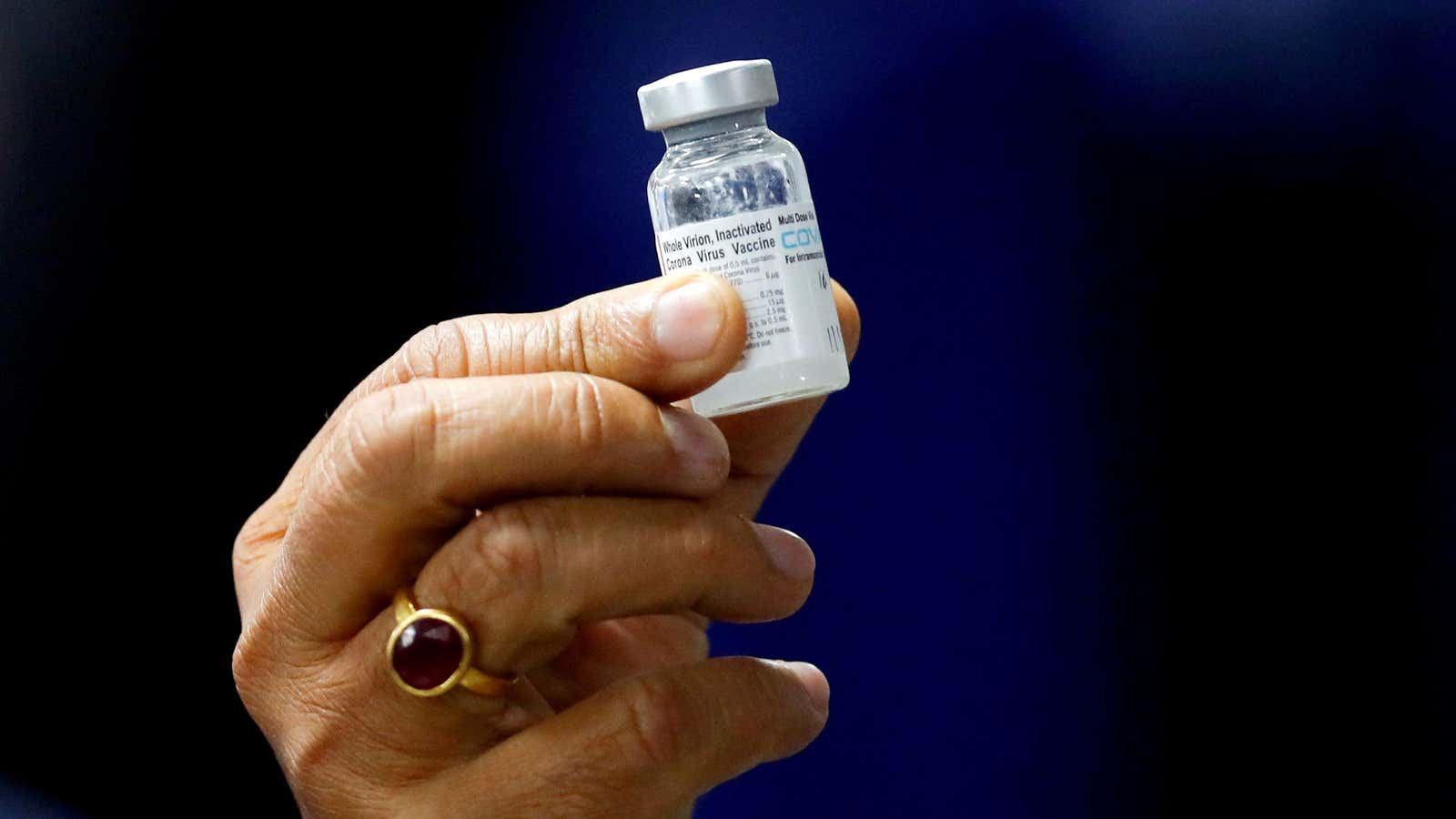Indians wistfully eyeing their passports are in a bind with Covid-19 vaccines.
Out of the three vaccines approved for use in India, only one—Covishield—features on the emergency use listing (EUL) of the World Health Organization (WHO). This listing is significant because many countries are now using it as a benchmark for allowing vaccinated foreign nationals to travel. For instance, on-campus classes in some universities in the US need students to be vaccinated with one of those in the WHO’s EUL.
India’s homegrown Covaxin, manufactured by Bharat Biotech, and Russia’s Sputnik V are both approved for use in the country but have not been granted EUL status by the WHO. Students are particularly worried, given that the fall semester begins in August.
But beyond the immediacy, even those who have already got the Covaxin shots are worried if it would jeopardise their international travel plans. “Vaccine passports are not a reality right now, but if they were to be implemented and Covaxin doesn’t make it to the WHO list, I will not be able to visit my daughter in the UK,” says Shama Gupta, a 56-year-old resident of New Delhi.
To remedy this, both Bharat Biotech and The Gamaleya National Center, the maker of the Sputnik V vaccine, have submitted their expression of interest documents to the WHO for approval. Sputnik V is further along the process, with data and WHO’s clinical inspections pending for the month of June.
Bharat Biotech, on the other hand, submitted its letter of interest on April 19, and the WHO has tagged its request with a note for “more information required.” The second step, a pre-submission meeting between the WHO committee and Bharat Biotech is planned for June. On its part, the vaccine maker has said that it has submitted “90% of the documents” required for WHO’s approval. The approval process is confidential and it is not clear yet what documents are missing.
Bharat Biotech’s case is also complicated by the fact that it has not yet concluded the phase 3 trials for Covaxin and not published its efficacy data in a peer-reviewed scientific journal. On the basis of an interim analysis, Bharat Biotech has claimed through a press release that its vaccine is 78% efficacious.
But foreign travel is not the only reason for vaccine makers to vie for EUL status.
Getting into the Covax pool
The WHO’s EUL is a prerequisite for any vaccine to be a part of Covax, the global vaccine sharing initiative. So far, there are seven vaccines on this list, including Covishield and the Pfizer and Moderna vaccines.
Covax procures vaccines from manufacturers and delivers them to low- and middle-income countries, in a bid to alleviate unequal access to Covid-19 vaccines. For Bharat Biotech, being on the EUL could open up access to a ready global market and a steady procurement channel. It currently has emergency use approvals in over 10 countries, and the company claims that it is aiming for approvals in the US and European countries, too. In the international market, the company sells Covaxin for $15-$20 per dose, which is far above the Rs400 ($5.49) it sells to Indian states for.
So far, Bharat Biotech has sold the vaccine to the Indian central government for roughly Rs200 per dose.
